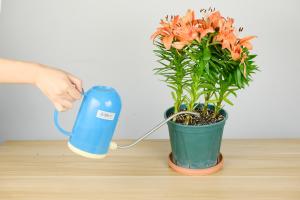What Happens if You Overwater Tomato Plants
Tomatoes are a popular and relatively easy crop to grow in the home garden. However, like all plants, tomatoes require proper care and attention, including the right amount of water. Too much watering, or overwatering, can have detrimental effects on tomato plants. Here, we explore what happens if you overwater tomato plants.
Root Rot
Root rot is a common problem associated with overwatering tomato plants. The excess moisture in the soil causes the roots to become waterlogged, depriving them of the oxygen they need to survive. This leads to the roots rotting, which ultimately affects the entire plant. Signs of root rot include yellowing leaves, stunted growth, and the plant becoming mushy.
Fungal Diseases
When tomato plants are overwatered, the excess moisture creates the perfect environment for fungal diseases to thrive. These diseases include early blight, late blight, and powdery mildew. Early blight causes yellowing and browning of the leaves, while late blight causes dark patches on the leaves and stems. Powdery mildew results in a white, powdery substance covering the leaves. These diseases can be difficult to treat and may require the use of chemical fungicides.
Nutrient Deficiencies
Overwatering tomato plants can also lead to nutrient deficiencies. The excess water can leach essential nutrients out of the soil, making it more difficult for the plant to absorb them. This can result in the plant becoming stunted, with small fruits and leaves. Nutrient deficiencies can be combated by fertilizing the plant regularly, preferably with organic fertilizers.
Pest Infestations
Overwatering can attract pests to tomato plants, as the excess moisture creates a warm and humid environment. Pests such as aphids, spider mites, and whiteflies can infest the plant, causing damage to the leaves and fruits. These pests can be discouraged by using organic pest control methods such as neem oil, insecticidal soap, or introducing beneficial insects such as ladybugs and parasitic wasps.
Conclusion
Overwatering tomato plants can have detrimental effects on their health and overall growth. Root rot, fungal diseases, nutrient deficiencies, and pest infestations can all occur as a result of too much water. It is important to monitor soil moisture levels and only water tomatoes when the soil feels dry to the touch, preferably in the morning to allow the leaves to dry before evening. Taking these steps can help to ensure healthy and productive tomato plants.

 how many times do yo...
how many times do yo... how many planted tre...
how many planted tre... how many pine trees ...
how many pine trees ... how many pecan trees...
how many pecan trees... how many plants comp...
how many plants comp... how many plants can ...
how many plants can ... how many plants and ...
how many plants and ... how many pepper plan...
how many pepper plan...





























